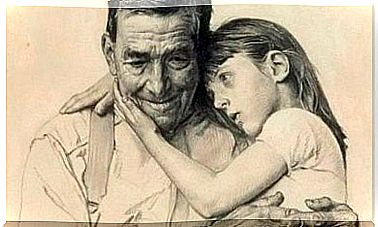Dealing With Anxiety And The Stressors To Avoid

There’s a reason we fail to be open to those many tips for dealing with anxiety. That’s because our mind works on a different level. Because all kinds of obstacles block our focus. After all, it is completely controlled by too much worrying, negativity and a lack of self-control.
It’s hard to “slow down” when our mind is in this state.
Plus, even on vacation, we feel exhausted and “like we’re losing control.” This can cause us to have an anxiety attack.
On the other hand, it is necessary to point out that many strategies and advice for dealing with anxiety are limited to treating the symptoms. They don’t address the root of the problem.
Practicing meditation, going for a walk, or even taking a sedative can help ease the symptoms. But the issues that cause our fear are still within us.
Therefore, it is imperative that we know what to avoid when we suffer from anxiety.
That way we can better understand the “demons” in our heads. This will make it possible to control them, weaken them and take back control of our lives.
1. Try not to worry; break the trail of “grinding” thoughts

Stop! Break the cycle of persistent thoughts that rob you of your peace and stability during the day.
- We have to be aware of the moment when a thought, an image, a phrase or a memory becomes fixed in our mind.
- Once we recognize a “grinding” thought, we need to divert our attention to something more relaxed and positive.
Playing sports, coloring mandalas, or talking to someone we trust are some of the best tips for dealing with anxiety.
2. Don’t run and don’t hide from your troubles
Maybe your job is causing so much anxiety that you’ve decided to quit. Maybe your problems with that important other person in your life are so serious that you prefer to spend more time outside the house and come home late…
- These behaviors are direct ways to run away from our worries and from what confuses us.
- Don’t transfer today’s worries to tomorrow. Because if you do this, you will pile up more and more worry, fear and frustration in your mind. Then there will be no room for anything else.
3. Don’t worry about what hasn’t happened yet
“If you do this, that will happen.” Or “If you say this, that will happen.” And another example: ‘If I change that, then what I don’t want to happen will definitely happen…’
Do you recognize yourself in these kinds of thoughts? Then remember that they are the hallmark of the most damaging and the most debilitating form of anxiety that people can experience. Disastrous thoughts keep us from living in a full and receptive way.
No one has a crystal ball to see what may or may not happen tomorrow. So focus on the present and keep the negativity in check.
4. Relax and don’t be so “forced” on yourself…
Individuals who have experienced an anxiety attack more than once fear that it will happen again. Sometimes they worry so much about repetitive attacks that their fear does indeed trigger new attacks.
- We must avoid watching ourselves too much. Controlling our heartbeat, our heart rhythm, and thoughts like “ If I go in there I’ll get nervous ” or “ If I do, I’ll lose control ” are things that don’t help us.
- So we must learn to change this habit. This will make it possible to live in an open way and live with more confidence. Then we will be able to face our fears. Because in this way we find peace and stability.
5. Don’t try to live without fear because that’s not what it’s about
This is a mistake that is made very often: we think that fear is an enemy that we must avoid at all costs.
- But the secret to one of the best pieces of advice for dealing with anxiety is finding balance. Accept that you live with fears but don’t let them control you.
- We must recognize that fear is a part of every human being. It helps us survive and avoid taking unnecessary risks. It even gives us the energy and motivation to get what we want or achieve.
- But when anxiety becomes an emotion that paralyzes us, controls us, or robs us of our happiness, it’s time to act.
We need to find out what’s causing the problem. It is important that we sit down and have a conversation with ourselves. In this way we can transform the negative feelings into positive ones.
6. When you suffer from anxiety you better avoid some people
This may sound strange. But sometimes the core of our fear can be caused by a certain person who robs us of our happiness every day.
- That person could be your partner, or a complicated, damaging relationship that turns us into someone we’re not.
- This can be the whole situation such as your work environment. You may not be able to get used to this completely.
- It could also have to do with our family. We may feel out of place or vulnerable.
The best thing we can do in this case is determine the root cause of our anxiety. Based on that, we then design possible “escape routes” or actions to solve the problem.
7. Don’t stop living. Realize that fear robs you of precious time
Even if we don’t realize it, this is what is happening. Feelings of fear steal our lives, our will, our hopes, and even our identity.
- Tips for dealing with fear help us to prevent fear from turning us into another person. This could be someone we don’t like very much and who is not at all like the person we used to be.
- Do not allow this to happen! Don’t let this “identity thief” steal your personality and your happiness. Because you will be left without anything. Take control, grab the reins and find yourself. Find the problem and possible solutions.
Remember that it is necessary to approach this problem from different dimensions. In this way we can learn to control feelings of fear.
Medication is helpful. But we also need to use cognitive behavioral therapy, relaxation techniques, and the support of family and friends. In this way we can find a balance in the best way in all the advice to deal with feelings of anxiety.









